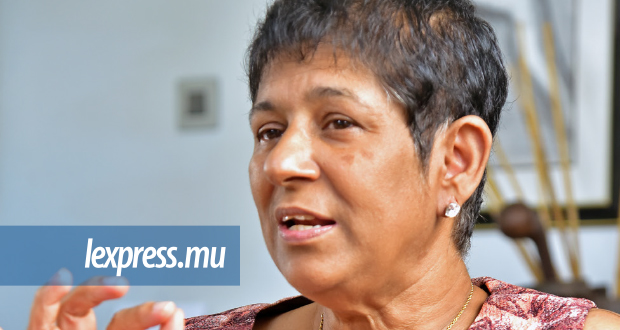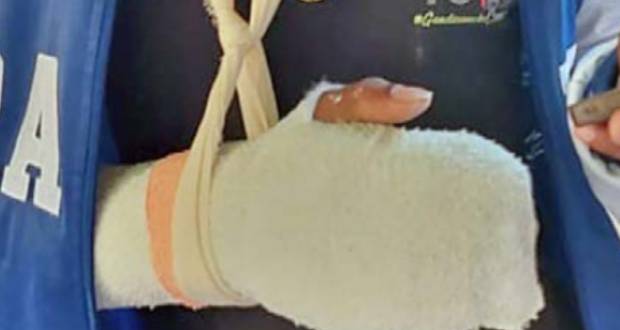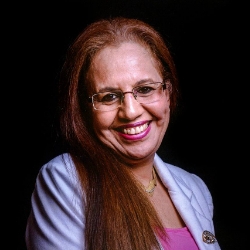Publicité
Interview with: Lovania Pertab
“We must make vote buying, in whatever form it is, an offence”
Par
Partager cet article
Interview with: Lovania Pertab
“We must make vote buying, in whatever form it is, an offence”

Lovania Pertab, Chairperson, Transparency Mauritius.
The V-Dem report on the TOP 10 “STANDALONE” AUTOCRATISERS, 2024 came out on Friday, placing Mauritius as the top “stand-alone autocratiser with the most recent autocratisation beginning from 2018. Lovania Pertab, chairperson of Transparency Mauritius takes us through the main points and motivations of this report.
The V-Dem report on the TOP 10 “STANDALONE” AUTOCRATISERS, 2024 came out on Friday. The verdict is unambiguous: Mauritius is the top “stand-alone autocratiser with the most recent autocratisation beginning from 2018,” according to the report. What is your reaction to that?
V Dem Institute is a recognised body internationally as the institute has so far collected more than 31 million data points for 202 countries from 1789 to 2023. Its report is to be taken seriously as it gives us an indication of how our country is perceived in terms of the exercise of democracy.
The report uses various parameters to assess the level of democracy in any country such as freedom of expression, freedom of association, egalitarian participation of citizens and the equal capacity of citizens to participate in the political era. Globally, the world itself has regressed in terms of democracy and unfortunately Mauritius is classified in a “grey zone” leaning stowards autocracy.
Should we learn this from international organisations? How about our own watchdogs?
Transparency Mauritius has on various occasions voiced its concern about the exercise of democracy in Mauritius. In any Index, be it the Corruption Perception Index of Transparency International or the Gender Gap Index, if the Index is stagnant, it should be a matter of concern for any country as it means that there is no major improvement.
But the report is not talking about lack of improvement, is it? It is squarely blaming Mauritius for sliding from the best pupil in Africa to an utter autocracy…
The report has used various parameters to come to the conclusion that our country is sliding towards autocracy. It has taken into account inter alia, our Electoral Democracy Index as to whether our elections are conducted fairly and freely. Our Egalitarian Component Index which measures the equal capacity of our citizens to participate equally in the political arena and the Participating Component Index regarding whether there is the active participation of citizens in political processes.
Talking about political processes, what about parliament?
We are all aware that the legislative process is not working properly and various queries about the actions of government are not being answered through various tactics. It is imperative that the ability of the legislature to question and investigate the wrongdoings of the government must be adhered to. Transparency Mauritius is very concerned that this essential tool of parliamentary questions is being degraded, misused and trodden down. The whole set up of our parliament must be revisited: must we have a non-elected speaker? It is high time that the standing Orders are refreshed and the powers of the Public Accounts Committee expanded.
l “Once hailed as the only liberal democracy in Sub-Saharan Africa, Mauritius recently introduced several regulations that restrict the work of broadcasting companies and journalists, while government media censorship efforts have increased significantly since 2019/20,” the report adds. What examples spring to your mind?
Social media may be used as a tool of repression such as censorship, internet showdown and disinformation whereby intentionally false, inaccurate and misleading information is propagated thereby causing harm to the exercise of democracy. Many citizens complain that they are trolled on social media for voicing their opinion. Sometimes, curse words are used to discredit women who want their voices to be heard. However, we do not have blatant examples of censorship regarding broadcasting companies or pressure on journalists at the level of Transparency Mauritius.
What about the new laws regulating the broadcast media, the registration fees they have to pay, the IBA being used to harass them… In fact, the worst offenders when it comes to “increasing their efforts to censor the media are El Salvador, India, and notably Mauritius,” the report says…
For the report to mention the fact that government is exercising censorship, there must have been complaints made at that level. Freedom of expression not only includes media freedom. It also includes the freedom of citizens to discuss political issues and the freedom of academic and cultural expression. We must also emphasise the importance of freedom of association whereby all citizens have the capacity to participate in politics and elections and there are no abusive arrests to discourage or threaten them.
The report states that elections can either trigger democratisation, enable autocratisation or aid the stabilisation of autocratic regimes. Is V-Dem talking about rigging here?
Now that the perception that elections may be rigged, it will be difficult to persuade citizens that such is not the case. The only way forward is to render absolutely transparent every step of the election process and it must start now because come what may, parliament must be dissolved this year. Transparency Mauritius believes that it is of utmost importance that the coming elections reflect free and fair elections. It is imperative that all citizens advocate that we as a country have legislation on the financing of political parties at the earliest and we look into the problem of electoral expenses. We also should amend the Representation of People Act so as to render vote buying, in whatever form it is, an offence and have an updated Code of Conduct for all candidates at elections. Also, we should expand the capacity of the Electoral Supervisory Commission so that it indeed is able to supervise the elections.
But you are aware that in the recent years, many people appointed on the Electoral supervisory Commission are close to the prime minister. How is empowering them going to help with free, fair and credible elections?
Transparency Mauritius has always condemned nepotism (politique de petits copains) as it is a dangerous trend which eventually results in the state capture of all institutions resulting in a blatant form of autocracy. This situation dates back to independence and has since grown in amplitude. We request all governments, past and present, to reflect on the temptation of nepotism as it brings first and foremost inefficiency and poor services in terms of education, health services, infrastructures etc. to the citizens of our country.
l Every year, we have to wait for international organisations to sound the alarm bell. What are our local ones doing? Being censored too?
Indeed we have each year international bodies which are telling us that we are going in the wrong direction but we do not listen to them. Last year in his budget, the minister of finance announced that government was coming up with a whistleblowing legislation. Transparency Mauritius even submitted to the government a draft bill but up to now, there has been no progress on the file and citizens are still waiting for legislation on the matter. There is a saying that justice must not only be done but must be seen to be done. Transparency Mauritius is saying that transparency and good governance must not only be done but must be seen to be done.
While we were being served the V-Dem report, the highly controversial Financial Crimes Commission has finally seen its director general and commissioners nominated by the prime minister. Are you satisfied with the nominations and can now say that the commission will act independently?
Transparency Mauritius has many times requested that a National Strategy against Corruption be put in place so as the government may show its willingness to combat corruption but to no avail. Many intellectuals are now advocating that there should be an International Anti-Corruption Court. Mauritius is not participating officially in this debate. Transparency Mauritius has always advocated that those types of nominations must be done in a transparent manner by adopting a transparent process for the nomination. We have several times stated that this specific nomination must be made by the Legal and Judicial Service Commission. Many citizens have had no faith in the ICAC. Do you think they will now have faith in the Financial Crimes Commission? We do not agree that the same organisation should investigate a financial crime, decide whether to prosecute or not and then proceed with the prosecution of the case before a court of law. Where are the checks and balances of such a process? We see no reason why there has been an erosion of the duties and function of the DPP for financial crimes. The system has worked well for many decades and there were no valid reasons for such a change.
Publicité
Les plus récents






